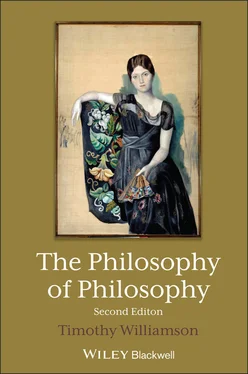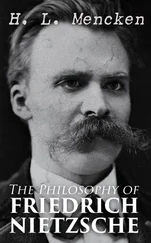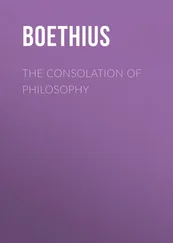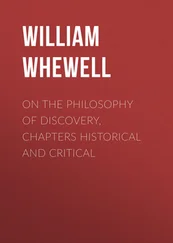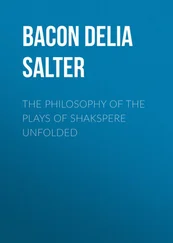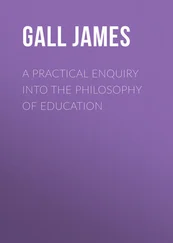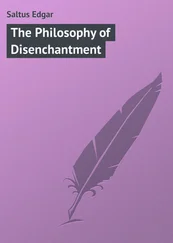This chapter examines a variety of attempts to develop a metaphysical account of analyticity. Some depend on misconceptions about meaning or truth. Others yield intelligible notions of analyticity, by watering down the traditional account to a point where it loses most of its usually supposed implications. They provide no reason to regard analytic truths as in any way insubstantial. 5Even if core philosophical truths are analytic in such a sense, that does not explain how we can know or justifiably believe them. 6At best it reduces the problem to the epistemology of another class of truths, such as necessary truths or logical truths. The next chapter will examine attempts to develop an epistemological account of analyticity, also with negative results. The overall upshot is that philosophical truths are analytic at most in senses too weak to be of much explanatory value or to justify conceiving contemporary philosophy in terms of a linguistic or conceptual turn.
The conclusion is not best put by calling purportedly analytic truths “substantial,” because in this context the term “substantial” is hopelessly vague. Rather, appeals in epistemology to a metaphysical conception of analyticity tend to rely on a picture of analytic truths as imposing no genuine constraint on the world, in order to explain the supposed fact that knowing them poses no serious cognitive challenge. If that account could be made good, it would provide a useful sense for “insubstantial,” which would refer to the pictured property, epistemological not in its nature but in its explanatory power. Substantial truths would be the ones that lacked this property. But the account cannot be made good. The metaphysical picture cannot be filled in so as to have the required explanatory power in epistemology. Thus “substantial” and “insubstantial” are not provided with useful senses. The negation of a picture is not itself a picture. That is a problem for appeals to metaphysical analyticity, not for the present critique.
The distinction between analytic truth and synthetic truth does not distinguish different senses of “true”: analytic and synthetic truths are true in the very same sense of “true.” That should be obvious. Nevertheless, it is hard to reconcile with what many logical positivists, Wittgensteinians and others have said about analytic truths. For they have described them as stipulations, implicit definitions (partial or complete), disguised rules of grammar and the like. On such a conception, enunciating an analytic truth is not stating a fact but something more like fixing or recalling a notation: even if talk of truth as correspondence to the facts is metaphorical, it is a bad metaphor for analytic truth in a way in which it is not for synthetic truth. In the face of this conception, we should remind ourselves why “truth” is quite unequivocal between “analytic truth” and “synthetic truth.”
We can start by considering a standard disquotational principle for truth (where both occurrences of “P” are to be replaced by a declarative sentence):
(T) “P” is true if and only if P.
If “true” is ambiguous between analytic truth and synthetic truth,
(T) must itself be disambiguated. Nevertheless, the left-to-right direction holds for both notions:
(Talr) “P” is analytically true only if P.
(Tslr) “P” is synthetically true only if P.
Obviously, “Bachelors are unmarried” is analytically true only if bachelors are unmarried, just as “Bachelors are untidy” is synthetically true only if bachelors are untidy. The exact parallelism of (Talr) and (Tslr) already casts doubt on the supposed ambiguity. Indeed, they are jointly equivalent to a single principle about the disjunction of analytic truth and synthetic truth (“simple truth”):
(Taslr) “P” is analytically true or synthetically true only if P.
Worse, the right-to-left direction fails for both notions:
(Tarl) “P” is analytically true if P.
(Tsrl) “P” is synthetically true if P.
For (Tarl) has a false instance when a synthetic truth is substituted for “P”; (Tsrl) has a false instance when an analytic truth is substituted for “P.” There are no natural substitutes for the right-to-left direction of (T) in the form of separate principles for analytic truth and synthetic truth. Rather, the natural substitute for the right-to-left direction disjoins the two notions:
(Tasrl) “P” is analytically true or synthetically true if P.
But (Tasrl) reinstates simple truth as the theoretically important characteristic.
One cannot avoid the problem by qualifying “true” in (T) with “analytic” for “the relevant kind of sentence” and with “synthetic” for the rest. For the sentences of the relevant kind are presumably just the analytic truths and analytic falsehoods. Thus the schemas for analytic and synthetic truth amount to these:
(Ta) If “P” is analytically true or analytically false, then “P” is analytically true if and only if P.
(Ts) If “P” is neither analytically true nor analytically false, then “P” is synthetically true if and only if P.
But (Ta) and (Ts) follow from (Taslr), (Tasrl) and the analogue for falsity of (Taslr): 7
(Faslr) “P” is analytically false or synthetically false only if not P.
Thus the information in (Ta) and (Ts) is in effect just information about the disjunction of analytic truth and synthetic truth. The attempt to treat analytic truth and synthetic truth separately just confuses the theory of “true.” The same happens for other theoretically important applications of “true.”
Consider the standard two-valued truth-table for the material conditional:
| A |
B |
A→ B |
| T |
T |
T |
| T |
F |
F |
| F |
T |
T |
| F |
F |
T |
If “true” is ambiguous between analytic truth and synthetic truth, what does “T” mean in that table? We might try subscripting it as T analyticand T synthetic, multiplying the possibilities in the first two columns accordingly and adding the appropriate subscript in the third column. “F” will require corresponding subscripts too. Since the possibilities T analytic, T synthetic, F analyticand F syntheticarise for both Aand B, the new truth-table will have sixteen lines. Worse, consider this case:
| A |
B |
A→ B |
| T synthetic |
T synthetic |
T? |
What subscript is appropriate for the third column? Suppose that Barbara is a barrister, and therefore a lawyer. Of the following four sentences, (1), (2) and (4) are synthetic while (3) is analytic (with “if” read as →):
1 (1) Barbara is a barrister.
2 (2) Barbara is a lawyer.
3 (3) If Barbara is a barrister, Barbara is a lawyer.
4 (4) If Barbara is a lawyer, Barbara is a barrister.
Since Barbara could easily not have been a lawyer at all, (1) and (2) are synthetic. If there are analytic truths, (3) is one of them; “barrister” simply means a lawyer with certain qualifications. Thus we cannot put “synthetic” for the missing subscript in that line of the truth-table, for that gives the wrong result when we read Aas (1) and Bas (2). Since Barbara could easily have been a lawyer without being a barrister, by being a solicitor, (4) is synthetic too. Thus we also cannot put “analytic” for the missing subscript, since that gives the wrong result when we read Aas (2) and Bas (1). Therefore the truth-table cannot be completed. Whether a material conditional is analytically true and whether it is synthetically true are not a function of whether its antecedent is analytically true, whether its antecedent is synthetically true, whether its consequent is analytically true and whether its consequent is synthetically true.
Читать дальше
